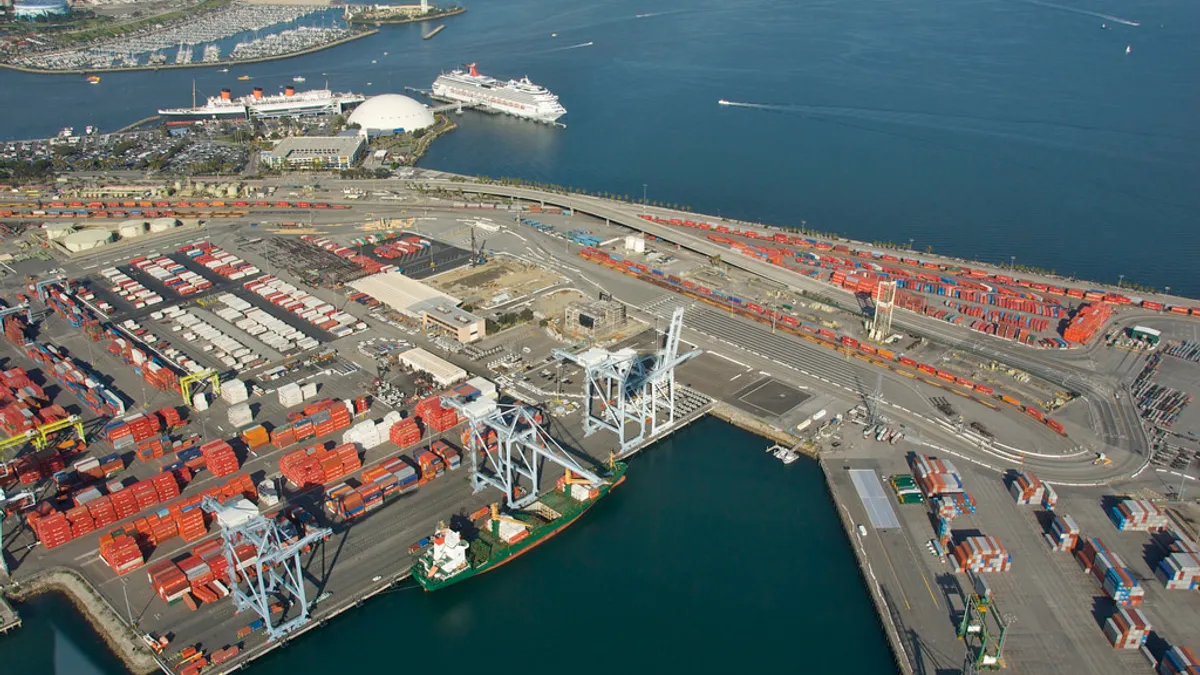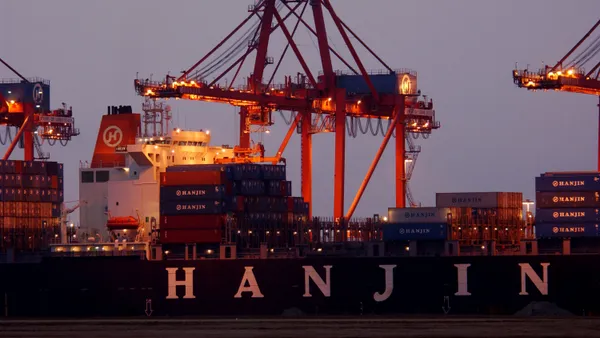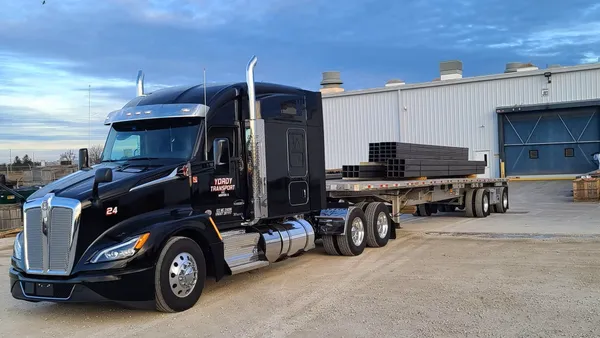Dive Brief:
- The Port of Long Beach last week heard testimonies from truckers, terminal operators, legislators and workers, as it seeks ways to improve trucking efficiency at the facility, according to a press release.
- Leading the list of issues was port drayage drivers' assertions they should be classified as employees of trucking companies, rather than independent operators.
- The three-hour meeting also included discussions of driver pay, labor supply, operations, efficiencies and other issues. Port staff will prepare reports for the Board of Harbor Commissioners and the Long Beach City Council.
Dive Insight:
Truck drivers have been battling trucking companies to classify them as workers eligible for benefits rather than operating as independent truck drivers who operate as individual business owners.
Drivers at the Ports of Los Angeles and Long Beach have gone on 15 strikes in the last five years and have filed numerous lawsuits against trucking companies over the classification issues, according to the Teamsters Port Division Justice for Port Drivers website.
As of Monday, Oct. 1, there were no work actions at the Port of Long Beach, spokesperson Lee Peterson told Supply Chain Dive.
In a statement, Harbor Commission President Tracy Egoscue said the men and women who drive the cargo trucks are a vital part of the global supply chain and their concerns should not be overlooked.
"Our goal is to work with our stakeholders to bring efficiencies in the system, to make it easier for truckers to do their jobs, for example by reducing turn times and broadening the use of appointments," Egoscue said.
Because of their proximity, the San Pedro Bay ports of Long Beach and Los Angeles share the same pool of 17,000 trucks and 2,000 trucking companies that contract with or employ truck drivers. In 2017, drivers made more than 3.8 million truck moves in Long Beach alone, according to the port.












